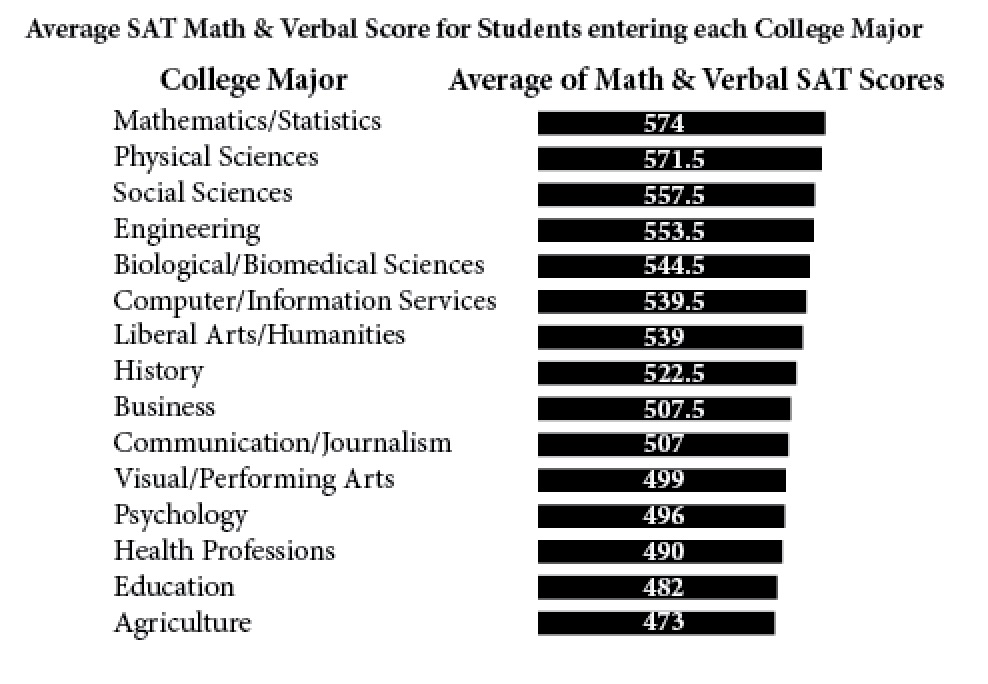
According to the US Census Bureau, about 40% of American adults have a bachelor’s degree, about 14% have a master’s degree, and about 2.2% have a Ph.D. or other doctoral degree (e.g., medical, legal, or academic doctorates). Since gaining entry into a Ph.D. or doctoral program requires exceptional performance at the earlier levels, those of higher academic ability, strongly correlated to intelligence, typically become the Ph.D. candidates. From these data, we can expect that most of those who earn a Ph.D. have a higher than average intelligence.
However, these data describe large groups of people, spanning a wide range of intellectual capability from relatively average to profoundly gifted. Data from the College Board indicate that the highest average SAT scores are earned by those in the STEM subjects, (Mathematics/Statistics average Math and Verbal Scores = 574) while the lowest are in agriculture and education (average Math and Verbal Scores = 480). The high correlation between IQ and SAT scores, suggests that there are significant differences in the average IQs of those who receive doctorates in different fields.
There are several reasons for the different levels of difficulty of various Ph.D. degrees. To be awarded a Ph.D. in mathematics, the Ph.D. candidate must break new ground, that usually involves proving a new theorem or improving the scope of another theorem. This is a daunting task, because a theorem that a person attempts to prove may be beyond the grasp of even the greatest mathematicians, so the candidate may come up empty after years of effort. A Ph.D. in this field would tend to attract only those who are highly confident in their capacity for abstract thought.
On the other hand, in some of the social sciences, the main effort involves designing an experiment and collecting and analyzing data. If the hypothesis is “A” and the data supports the hypothesis, the result is publishable. Otherwise, the data can be used to prove an alternative hypothesis. This kind of investigation is accessible to a wider range of intelligence levels. So you will see some Ph.D.s of relatively average intelligence, depending on the college, the department and the caliber of the thesis committee.
While people who earn a Ph.D. are entitled to be proud of their achievement, the brightest among them realize that the doctorate degree does not mean that they’re smarter than the average in all things. Outside their subject of expertise, there are vast amounts that others can teach them. So along with the accreditation should come some humility.
Many of the most intelligent people in our society have the ability, but not the inclination, to pursue advanced academic degrees. Bill Gates, with an almost perfect SAT score dropped out of Harvard before completing his bachelor’s degree, so he could start a computer software business. Jeff Bezos, a gifted student, went into wealth management with D.E. Shaw and then started Amazon without pursuing an advanced degree. And Elon Musk dropped out of a Ph.D. doctoral program in Engineering at Stanford to found Zip2. Yet all three are extremely intelligent and are capable of earning a Ph.D.
So, some people with a Ph.D. may believe that their degree proves that they’re smarter than the average bear. But if they are really smart, they will realize that their self-importance makes them “unbearable” to the rest of humanity.
